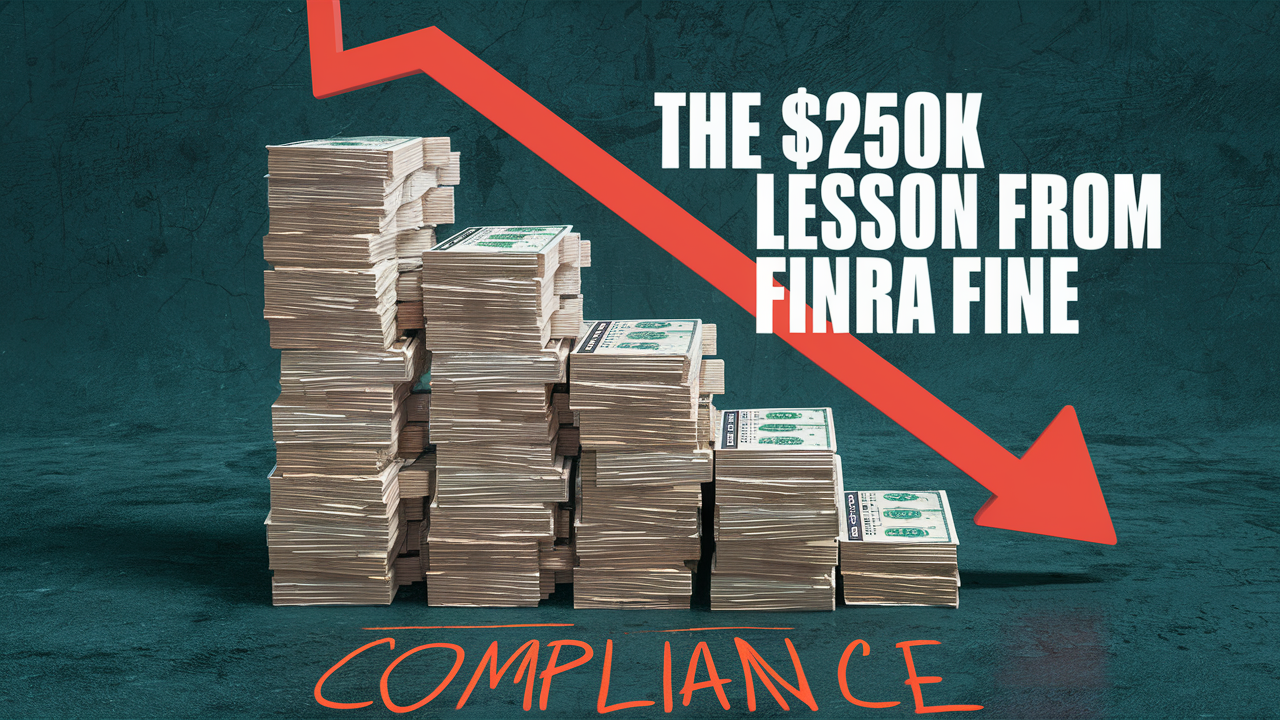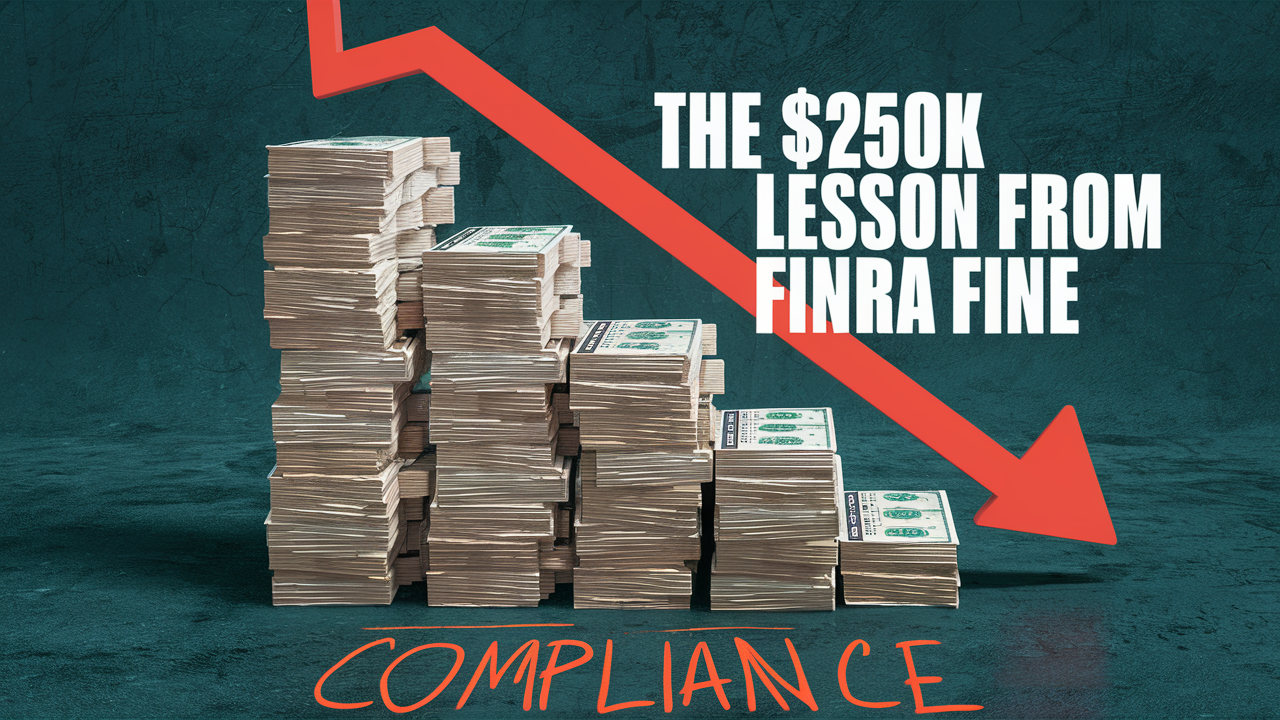Unleashing Compliance Mastery: How Loffa Interactive’s Innovations Transform Broker Operations
Absolutely, let’s enrich this blog post with a deeper dive into two particularly impactful parts for Prime, Executing, or Clearing Brokers, all while tweaking the tone as requested.
Navigating Regulatory Compliance: A Case Study and Solutions
Lessons from ACS Execution Services’ Fine by FINRA
 In the dynamic sphere of finance, staying compliant isn’t just mandatory—it’s your key to thriving. Take the ACS Execution Services’ stumble with Regulation SHO, catalyzed by their supervisory system lapses, costing them a hefty fine from FINRA. This incident is a no-joke reminder that robust compliance systems aren’t optional—they’re foundational to maintaining market integrity and protecting investor interests.
In the dynamic sphere of finance, staying compliant isn’t just mandatory—it’s your key to thriving. Take the ACS Execution Services’ stumble with Regulation SHO, catalyzed by their supervisory system lapses, costing them a hefty fine from FINRA. This incident is a no-joke reminder that robust compliance systems aren’t optional—they’re foundational to maintaining market integrity and protecting investor interests.
Why Loffa Interactive Stands Apart
Loffa Interactive, boasting two decades of delivering cutting-edge tech solutions for financial firms, is ideally positioned as your go-to for navigating the complex regulatory jungle. Their Freefunds Verified Direct (FVD) and Prime Broker Interactive Network (PBIN) are not just tools; they’re lifelines in the compliance quicksand.
The Game-Changers for Brokers
FVD: A Beacon for Regulation T Compliance
Regulation T can be a puzzle, but FVD is like having the picture on the box. It demystifies the management of Letters of Free Funds, making sure brokers glide through Regulation T requirements with ease. Prime brokers, get ready to witness frictionless execution of cash account transactions within the compliance guardrails.
PBIN: Making Prime Brokerage Compliance a Breeze
PBIN emerges as your compliance sage, particularly with the convoluted prime brokerage agreements and the essential SIA forms. This platform isn’t just about simplifying; it’s about enhancing operational workflow and ensuring not a single compliance detail is missed.
Digging Deeper: The Bulletproof Impact on Brokers
Let’s zero in on some critical, impactful aspects for Prime, Executing, or Clearing Brokers:
Enhanced Operational Efficiency
Both FVD and PBIN slice through the regulatory red tape, not just enabling compliance but turbocharging operational efficiency. This means brokers can allocate their resources and attention to where it matters most, overarching their daily operations with effectiveness and compliance.
Risk Mitigation
Diving into compliance with FVD and PBIN isn’t just about ticking boxes; it’s about building a fortress around your operations. These tools don’t just reduce the risk of penalties; they arm you with the confidence of foolproof compliance, guarding both your peace of mind and your balance sheet.
Security? Sealed and Delivered
In today’s digital age, security is non-negotiable. FVD and PBIN stand guard with top-tier security protocols, ensuring your data’s integrity and bolsterpting your firm’s reputation among clients and regulators alike.
The Takeaway
The ACS case wasn’t just a wake-up call; it was a loudspeaker announcement for every trading firm out there. Teaming up with technology allies like Loffa Interactive isn’t just smart—it’s essential for seamless regulatory compliance and operational excellence. Loffa’s unwavering focus on security, married with their extensive Wall Street service portfolio, marks them as an unmatched ally in your compliance journey. With their arsenal of FVD and PBIN, consider your firm not just compliant, but set to redefine the standards, allowing you to focus on your core business with unmatched confidence and capability.
In today’s cutthroat financial landscape, viewing compliance as an afterthought is playing with fire. Partnering with Loffa Interactive equips firms to not just navigate but conquer the complex regulatory terrain with ease, ensuring you’re always a step ahead in the compliance marathon.


 In an eye-opening turn of events that has rattled the cages of Wall Street, the SEC slapped a hefty $10 million fine on Intercontinental Exchange, the juggernaut behind the NYSE. This move comes after a critical cyber blunder in 2021, a stark wake-up call emphasizing the non-negotiable need for razor-sharp cybersecurity measures and a ninja-fast incident response mechanism.
In an eye-opening turn of events that has rattled the cages of Wall Street, the SEC slapped a hefty $10 million fine on Intercontinental Exchange, the juggernaut behind the NYSE. This move comes after a critical cyber blunder in 2021, a stark wake-up call emphasizing the non-negotiable need for razor-sharp cybersecurity measures and a ninja-fast incident response mechanism.
 In a decisive move to fortify compliance and safeguard investor privacy, the Financial Industry Regulatory Authority (FINRA) has imposed a humming $250,000 fine on an influencer company. This penalty springs from the company’s social media misconduct and lapses in privacy protection. FINRA’s bold action underscores a no-nonsense message across the financial landscape: compliance and customer privacy are not just talk; they are imperative, enforced by substantial penalties for breaches.
In a decisive move to fortify compliance and safeguard investor privacy, the Financial Industry Regulatory Authority (FINRA) has imposed a humming $250,000 fine on an influencer company. This penalty springs from the company’s social media misconduct and lapses in privacy protection. FINRA’s bold action underscores a no-nonsense message across the financial landscape: compliance and customer privacy are not just talk; they are imperative, enforced by substantial penalties for breaches. Prime Brokers, the linchpins in providing comprehensive services to hedge funds and similar entities, face sharper scrutiny and heightened responsibility. Given their central role in facilitating trades, managing assets, and offering custodian services, maintaining an unblemished compliance record becomes paramount. Regulatory missteps, especially in the nuanced realm of social media and data privacy, can lead to substantial fines, but more critically, erode client trust. Prime Brokers hence find a reliable ally in technologies that streamline compliance, like those offered by Loffa Interactive Group, ensuring they not only stay within regulatory grace but also fortify the trust vested in them by their high-profile clientele.
Prime Brokers, the linchpins in providing comprehensive services to hedge funds and similar entities, face sharper scrutiny and heightened responsibility. Given their central role in facilitating trades, managing assets, and offering custodian services, maintaining an unblemished compliance record becomes paramount. Regulatory missteps, especially in the nuanced realm of social media and data privacy, can lead to substantial fines, but more critically, erode client trust. Prime Brokers hence find a reliable ally in technologies that streamline compliance, like those offered by Loffa Interactive Group, ensuring they not only stay within regulatory grace but also fortify the trust vested in them by their high-profile clientele.